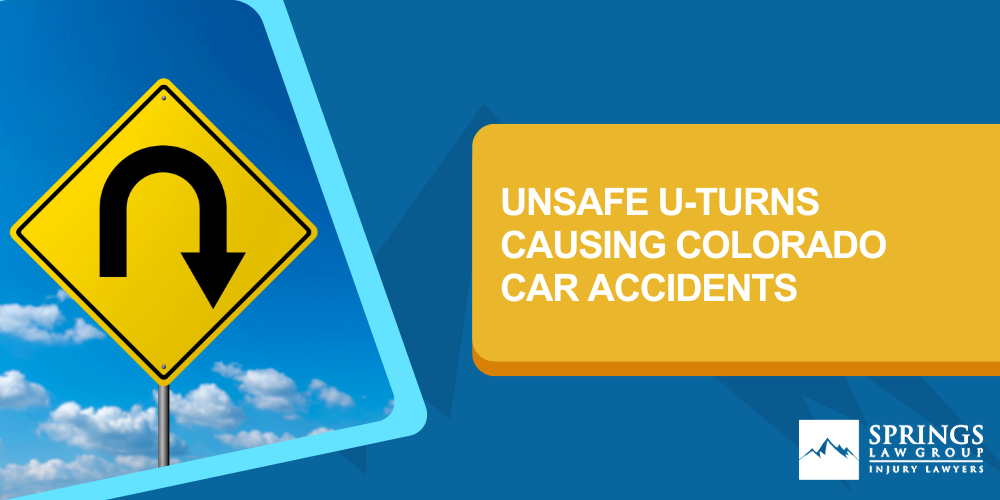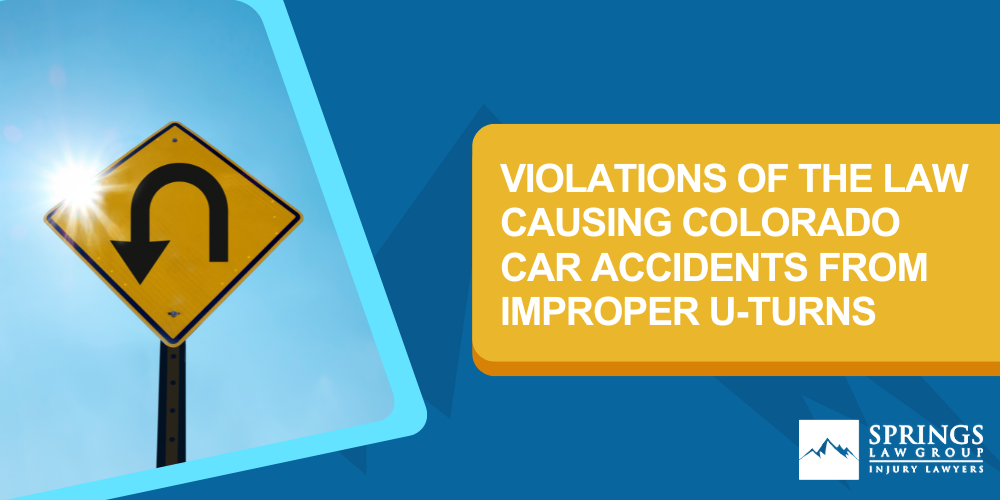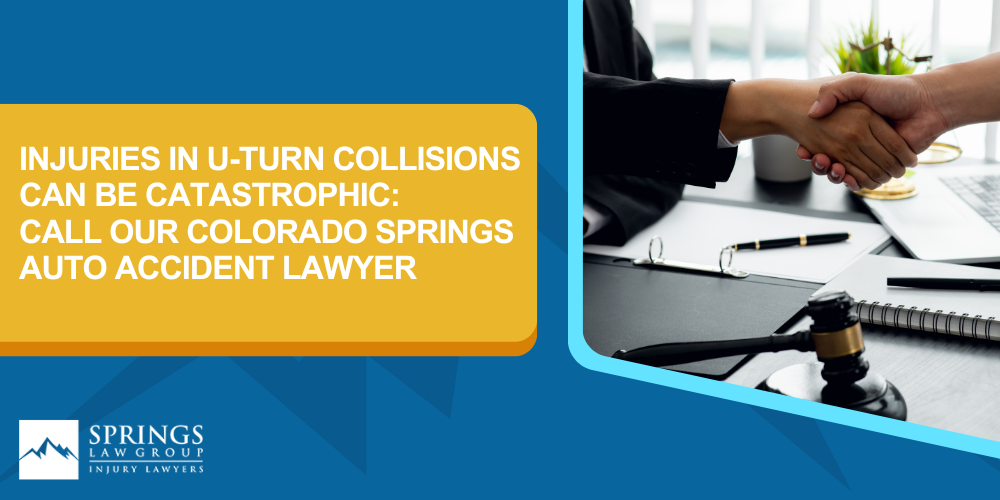Unsafe U-Turns Causing Colorado Car Accidents

We have all made a U-turn at one time or another during our lives. Many times, they can be done safely in a residential driveway or commercial parking lot such as a gas station. However, there are instances when there are stretches of road without a driveway or parking lot to make a U-turn. In such instances, drivers may opt to perform a “k-turn,” or “3-point turn” to effect a U-turn. This is a dangerous maneuver as it blocks at least two lanes of traffic. Improper or negligent U-turns can result in catastrophic Colorado car accidents.
Applicable Law Everyone Should Know
Under Colorado statutory law, Colo. Rev. Stat. section 42-4-902 provides under subdivision (1) that “[n]o vehicle shall be turned so as to proceed in the opposite direction upon any curve or upon the approach to or near the crest of a grade where such vehicle cannot be seen by the driver of any other vehicle approaching from either direction within such distance as is necessary to avoid interfering with or endangering approaching traffic.” In addition, section 42-4-902 (2) provides that “[t]he driver of any vehicle shall not turn such vehicle at an intersection or any other location so as to proceed in the opposition direction unless such movement can be made in safety and without interfering with or endangering other traffic.”
In addition to this statutory law, which is made by the Legislature, Colorado also has applicable common law which is formed by the judicial decisions that have evolved over the years. The common law sets forth a broad duty of motorists to use reasonable care in the use and operation of their motor vehicles. This standard is flexible too, and there are specific judicial cases applying specific facts to the circumstances as to what is reasonable under the circumstances. Generally, when there is a question as to the reasonableness, a jury is required to make such determination.
Violations of the Law Causing Colorado Car Accidents from Improper U-Turns

When a violation of the statutory or common law results in serious personal injuries after a car crash during a U-turn, victims may be entitled to compensation which is proximately caused by the crash.
Under the statutory law, a violation may result in an automatic finding of negligence under the doctrine of negligence per se. Clear examples of statutory violations include the following:
- U-turns on a curve (direct violation of subdivision (1)); and
- U-turns at or near the top of a hill (direct violation of subdivision (1)).
Examples of when the statute may be violated under subdivision (2) invoke the common law standard of negligence as to the reasonableness of a driver’s U-turn. Some of these examples include the following:
- U-turns at intersections;
- U-turns at poorly lit or dark roads;
- U-turns at very high traffic areas;
- U-turns across many lanes of traffic in many directions;
- U-turns in high-pedestrian traffic areas, particularly around schools;
- U-turns without turn signals or indicating lights;
- U-turns made aggressively or too quickly;
- U-turns during heavy rains or storming weather that lowers visibility and increases the stopping distance due to water or snow/ice on the roadway;
- Other instances where collisions occur between a vehicle making a U-turn and any other vehicle.
Injuries in U-Turn Collisions Can Be Catastrophic: Call Our Colorado Springs Auto Accident Lawyer
A vehicle colliding into another vehicle making an improper U-turn may result in significant injuries. This is because it is likely to be a head-on collision with the vehicle not violating the law which will T-bone the improperly turning vehicle. Common injuries including broken bones, head injuries (traumatic brain injuries or TBIs), back injuries (including neck injuries), knee injuries, shoulder injuries, wrongful death, and other debilitating or serious injuries.

Victims who have been injured in a Colorado car accident with a vehicle making an improper U-turn should call Springs Law Group to learn what their rights to compensation may be under Colorado statutory law and common law by dialing (719) 421-7141 or use the convenient and easy to use “Get Help Now” submission box available here. We can help walk you through the process, together, and help you get on the road to recovery. Call today to schedule for FREE consultation.
